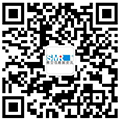Huawei, a Global Leading Brand, Awarded Punitive Damages of 5 Million Yuan for Trademark Infringement
Huawei, a household name in the smart terminal industry, enjoys a stellar reputation not only in China but also worldwide.
Huawei possesses a multitude of trademarks, with its core ones being "Huawei," "HUAWEI," and the iconic petal pattern, all of which hold immeasurable brand value.
Recently, a case of trademark infringement against Huawei has garnered widespread attention in the industry. The court ultimately ruled that the infringing company must pay punitive damages, awarding Huawei 5 million yuan.
Case Background
Huawei discovered on the Tmall shopping platform that a certain online store had added the word "Huawei" to its products, used the "Huawei" text and a logo featuring a petal graphic and related pinyin in its product display images, and even displayed a fake Huawei network sales authorization to consumers.
Huawei subsequently filed a lawsuit against the actual operator of the online store, Shenzhen Shangpai Technology Co., Ltd., at the Hangzhou Intermediate People's Court. Huawei demanded that the defendant immediately cease the infringing activities and compensate Huawei for economic losses amounting to 5 million yuan.
Case Proceedings
During the trial, the defendant company argued the following points:
-
The descriptions "Huawei Universal" and "For Huawei Wireless Headphones" on the Bluetooth headphones sold in the defendant's online store were indicative and descriptive uses of Huawei. Moreover, the products being sold did not use the involved trademarks. Therefore, the defendant claimed that they did not infringe upon Huawei's trademark rights nor constitute unfair competition.
-
The product brand "Ping'anxing" and the operator's name "Shenzhen Shangpai Technology Co., Ltd." were clearly highlighted. Thus, the defendant argued that they had no intention of misleading consumers regarding the product's origin, nor did they cause any confusion among consumers.
-
The defendant had purchased a brand authorization from Huawei through a third-party company in the same industry, Quandun, for a licensing fee of 54,000 yuan. Since other peers also obtained Huawei authorizations in this manner, the defendant mistakenly believed that they had legitimately acquired Huawei's authorization by paying the corresponding fee and thus had no malicious intent to infringe.
After reviewing the facts, the court reached the following conclusions:
-
In the product promotions of the defendant's online store, the use of the text "Huawei" was identical to Huawei's trademark. The main part of the eight-petal pattern was only slightly different in detail from the plaintiff's graphic trademark. Based on the general attention of the relevant public, it was easy to cause confusion. Consumers might mistakenly believe that the products from Shangpai were from Huawei or had a specific connection with Huawei's registered trademark products. Therefore, the court deemed it a similar trademark.
-
The evidence provided by Huawei showed that searching for "Ping'anxing Yuntuai" on Taobao yielded no results. This indicated that the "Ping'anxing" trademark had no notoriety. The significant sales volume of the product was largely due to its association with Huawei's trademark.
-
Regarding the defendant's claim of "Huawei authorization," it was argued that they were deceived by a third party. The defendant paid only 54,000 yuan for the authorization, which was significantly lower than the market price. Moreover, according to the chat records with Huawei's intelligent customer service, Xiaoyi, the defendant knew they could verify the authorization through Huawei's customer service. It was reasonable to assume that they should have known the authorization was fake.
Punitive Damages Applied
In summary, the court found that the defendant had intentionally created a false impression that their products were related to Huawei by tampering with the trademark. This behavior was not in good faith. It was a case of knowingly infringing upon another's trademark rights and still proceeding with the act, which demonstrated malicious intent.
Ultimately, the court ruled that the defendant must immediately cease the infringing activities and compensate Huawei for economic losses amounting to 5 million yuan.
Conclusion
In the internet age, where information is increasingly transparent, it is unwise to attempt to take advantage of internet platforms to exploit others' goodwill for illicit gains.

